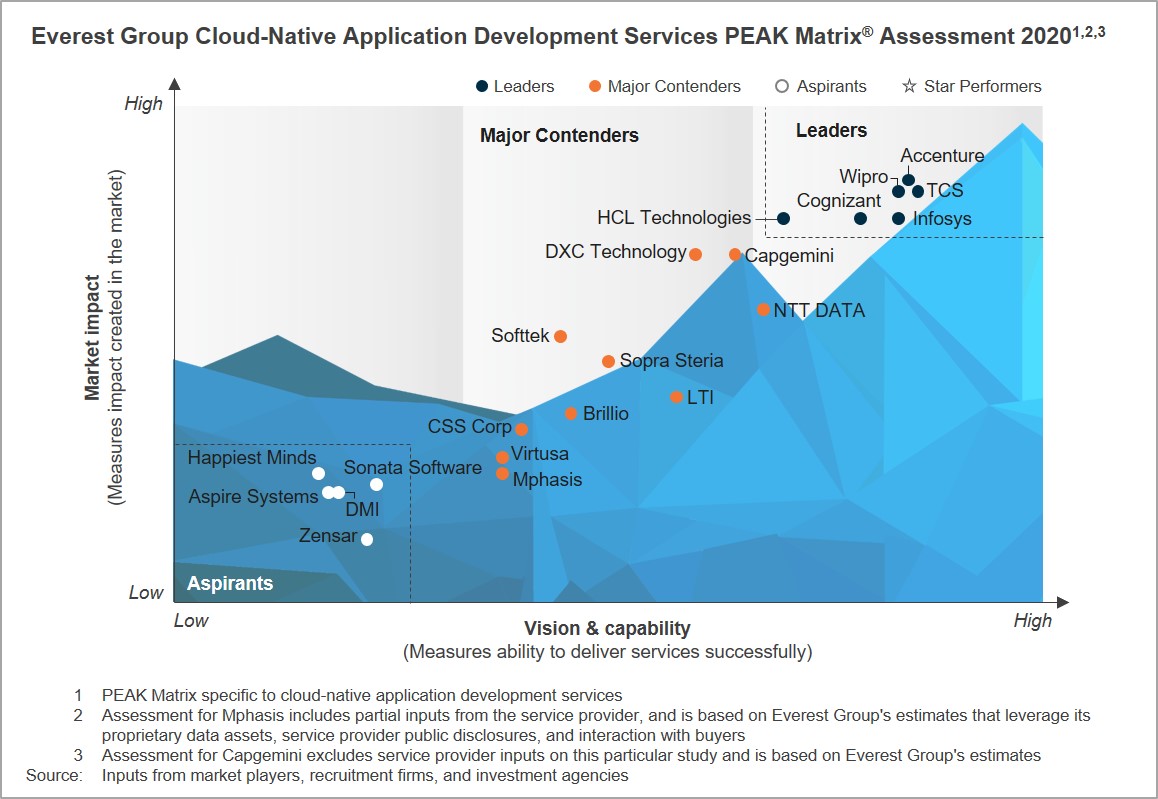Antwort Who is the leader of cloud native? Weitere Antworten – What is a cloud-native
Cloud native is the software approach of building, deploying, and managing modern applications in cloud computing environments. Modern companies want to build highly scalable, flexible, and resilient applications that they can update quickly to meet customer demands.Best Cloud Service Providers Summary
| Tools | Price | |
|---|---|---|
| Microsoft Azure | Pricing upon request | Website |
| Amazon Web Services (AWS) | Pay-as-you-go pricing model based on usage and cost optimization | Website |
| Digital Ocean | Simple, bolt-on pricing based on usage and requirements | Website |
| Hexafusion | Custom pricing | Website |
A cloud native solution abstracts infrastructure up to the operating system level while serverless computing takes the abstraction even further to include containerized workloads. Both abstract away the underlying hardware and create dynamic pools of resources for developers to access.
What is the difference between cloud-native and cloud first : Cloud first is an approach where businesses prioritize the use of cloud-based services over on-premise solutions. On the other hand, Cloud native refers to a design and development approach that focuses on building applications and services specifically for cloud environments.
Is Google cloud is cloud-native
As a public cloud provider, Google Cloud is a frontrunner in the creation of cutting edge Cloud Native technologies. We covered the top 7 technologies from Google Cloud in the Cloud Native era in our 2023 TechRadar. They all have the following characteristics in common: Help to accelerate business impact.
Is Azure cloud-native : Get the most from the cloud
Build your cloud-native apps with Azure fully managed services, seamlessly integrated development tools, and built-in, enterprise-grade security.
Top Amazon Web Services Alternatives
- Microsoft Azure.
- Google Cloud Platform.
- IBM Cloud.
- Oracle Cloud Infrastructure.
- VMware Cloud on AWS.
- Huawei Cloud.
- Alibaba Cloud.
- DigitalOcean.
The choice between AWS and Azure is mostly down to preference as both providers offer market-leading services with some additional perks like AWS' stronger consumer base and Azure's easy integration with Microsoft technologies.
Does cloud-native mean Kubernetes
Kubernetes is a Cloud-Native technology since it has traits and attributes similar to cloud applications. However, the Cloud-Native idea does not neglect the use of on-premises infrastructure, and it is equally desirable to run Kubernetes deployments on-premises.Containerization compared to cloud native
Cloud-native application development requires different technologies and approaches than conventional monolithic applications. Containerization is one of the technologies that allows developers to build cloud-native applications.Cloud-native applications provide higher agility, resilience, and portability across different cloud providers, empowering businesses to adapt and scale as needed. By embracing cloud-native technologies, businesses can take advantage of these benefits and unlock improved efficiency, scalability, and resilience.
Cloud-native: Typically less expensive because you're paying for licenses, storage, and maintenance costs from the cloud provider. Cloud-based: It becomes more expensive because you need to own the entire stack and potentially acquire hardware, power, and cooling before deploying the application.
Who is market leader AWS or Azure : AWS had the largest market share of cloud infrastructure services at 33% in Q1 2022. Microsoft Azure had a market share of 22% in Q1 2022, with Google at 10% and all other companies at 35%.
Who is the AWS leader : Adam Selipsky
SelipskyChief Executive Officer, Amazon Web Services. Adam Selipsky is the CEO of Amazon Web Services (AWS), the world's most comprehensive and broadly adopted cloud.
Is AWS losing to Azure
While Amazon has dominated the industry for more than a decade, AWS is growing far more slowly than Microsoft's Azure cloud infrastructure unit. If current trends continue, Azure could be the industry leader by 2026.
Bernstein Research analysts led by Mark Moerdler said Wednesday in a note to clients that they viewed Microsoft's results as a sign the software maker “has taken the AI mantel from Google, and that Azure could become a bigger and more important hyperscale provider than AWS.” They noted the significance of Microsoft's …Some developers dismiss it as a hype that will fade after a while. Others see it as the future of software development. Cloud-native will be a big trend in the future, regardless of what it brings. It has also changed how we develop, deploy, and operate software products.
Why is Kubernetes called cloud-native : Kubernetes is a Cloud-Native technology since it has traits and attributes similar to cloud applications. However, the Cloud-Native idea does not neglect the use of on-premises infrastructure, and it is equally desirable to run Kubernetes deployments on-premises.








